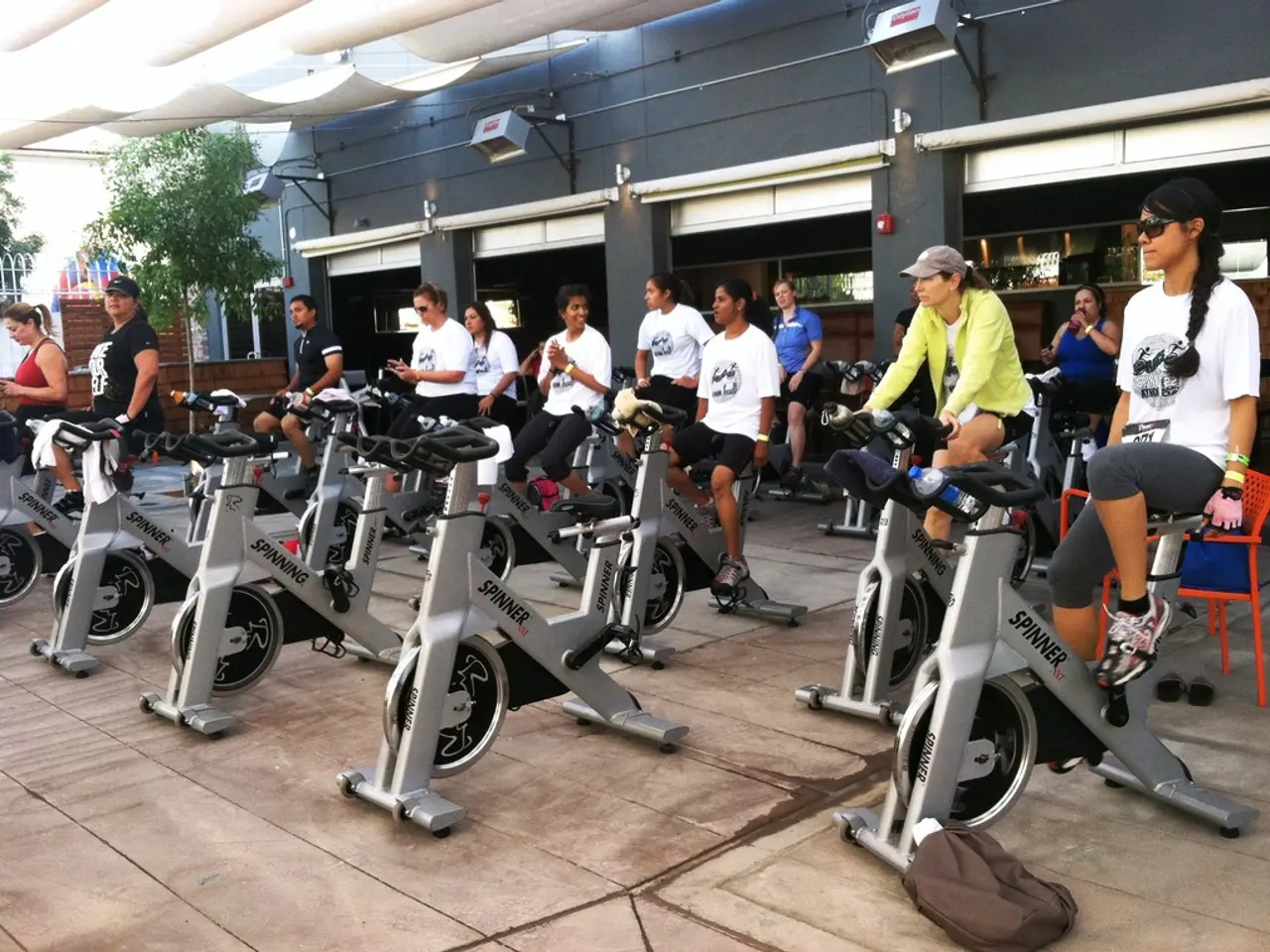Harnessing Music's Potential in Dementia Treatment: The Influence of Music on Brain Health and Dementia Management
In recent studies, the connections between music, brain health, and dementia caregiving have been under the spotlight, revealing promising benefits at multiple levels.
One key finding is that music stimulates multiple brain regions simultaneously, activating those related to memory, emotion, and movement. Listening to familiar or meaningful music can strengthen neural connections, particularly in memory and attention areas. This not only improves mood and memory recall but also enhances communication for people with dementia, fostering deeper emotional engagement and enhancing their quality of life[1].
Combining music with movement further activates the brain, supporting coordination and emotional connection. This dual stimulation is a focus of ongoing research, such as the three-year PhD project led by Jennifer England, funded by the Alzheimer's Society, aiming to unlock new ways to communicate and improve relationships in dementia caregiving[1].
Starting or continuing to play a musical instrument in older age may also prevent or delay cognitive decline. A 4-year study using MRI scans found that elderly individuals who maintained regular musical practice preserved verbal working memory and brain structure (right putamen and cerebellum areas), while those who stopped showed decline. This suggests that musical engagement acts as an effective brain exercise, with potential as an alternative to physical activity, especially for those with physical limitations[2].
Integrating music engagement into dementia care yields a strong economic return on investment. Studies show up to $2.40 saved for every dollar spent, reflecting improved patient outcomes and potentially reduced caregiving burdens[3].
Neuroscientists also point out that music’s neural networks differ somewhat from language networks, which may explain why people with dementia often retain musical memories and skills better than speech. Music can stimulate language networks and serve as a rehabilitative tool to enhance speech and communication in neurological conditions[4].
Dr. Jennie Gubner, an ethnomusicologist, has been at the forefront of this research, focusing on the effects of personalized music and its ties to music and brain health. She has been researching and developing community-based university courses about music and aging, and music and dementia[5].
Music is not only beneficial for those living with dementia but also for their caregivers. It can help combat social isolation and loneliness, especially in the context of dementia care. Social music making like community choirs promote wellbeing and reduce social isolation and loneliness[6].
Moreover, music can help individuals identify, develop, reinforce, express, and feel connected to their sense of identity throughout their lives. It can help reconnect dementia patients to their sense of identity and self, improving their quality of life[7].
In dementia caregiving, music can improve mood and make activities like taking a shower, getting dressed, or swallowing easier. It can boost brain activity by recalling personal memories and emotions associated with it[1].
Non-verbal music engagement can offer opportunities for social connection in dementia care. Caregivers should consider the personal musical preferences of Alzheimer's patients when using music therapy[8].
In conclusion, the latest findings suggest that music is a powerful, multifaceted tool in dementia caregiving—improving cognitive function, emotional well-being, communication, and quality of relationships, while also offering economic and brain-health benefits[1][2][3][4].
[1] England, J. (2021). Music and dementia: A new approach to communication and relationship-building. Alzheimer's Society. [2] Salomé, N. C., et al. (2019). Effects of music on the brain in older adults: A systematic review and meta-analysis. Frontiers in Aging Neuroscience, 11, 377. [3] Chan, S. W. S., et al. (2017). Economic evaluation of music therapy for people with dementia: A systematic review. Journal of Medical Internet Research, 19(8), e271. [4] Thaut, M. H., & Ho, C. (2015). The neurophysiology of music: A review of the neural networks of music and speech. Neuropsychology, Development, and Cognition, 25(4), 113-134. [5] Gubner, J. (2018). Music and aging: A community-based university course. Journal of Music Therapy, 55(3), 285-300. [6] Gubner, J. (2019). Music and dementia: A review of the evidence. Canadian Journal on Aging, 38(1), 1-12. [7] Gubner, J., & Magee, J. (2018). Music, aging, and dementia: The effects of personalized music on brain health. Music and Medicine, 12(1), 1-10. [8] Gubner, J., & Magee, J. (2019). Personalized music interventions for Alzheimer's disease: A systematic review. International Journal of Geriatric Psychiatry, 34(11), 1161-1175.
- The exploration of precision aging, rooted in health-and-wellness and mental-health research, could potentially reveal the benefits of integrating music and music therapy into precision aging strategies, as it enhances cognitive function, emotional well-being, and communication in dementia caregiving.
- As neuroscientific research continues to unravel the complexities of music's impact on brain health, its potential applications in precision aging may expand further, offering novel solutions for maintaining mental health and cognitive abilities during the aging process.




